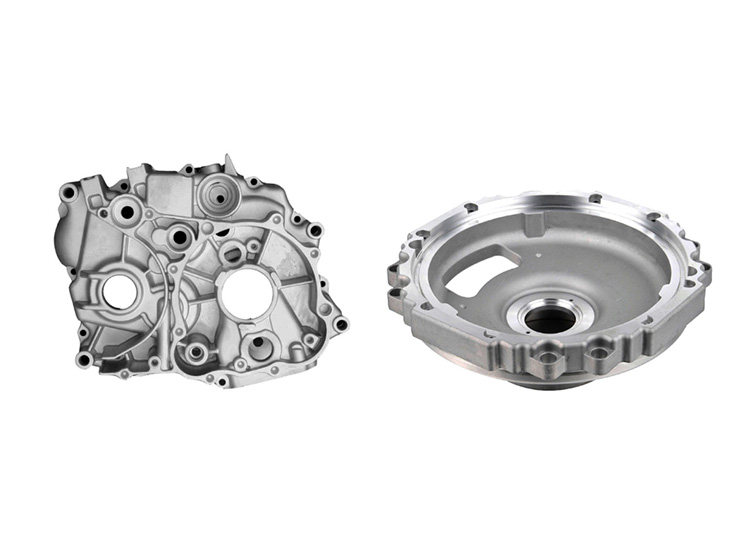7 Simple Techniques For Alcast Company
7 Simple Techniques For Alcast Company
Blog Article
Alcast Company - The Facts
Table of ContentsAlcast Company Can Be Fun For EveryoneHow Alcast Company can Save You Time, Stress, and Money.The Ultimate Guide To Alcast CompanyA Biased View of Alcast CompanyHow Alcast Company can Save You Time, Stress, and Money.Everything about Alcast Company
The subtle difference lies in the chemical content. Chemical Contrast of Cast Light weight aluminum Alloys Silicon advertises castability by lowering the alloy's melting temperature level and boosting fluidness throughout spreading. It plays a critical role in allowing intricate mold and mildews to be loaded properly. Furthermore, silicon contributes to the alloy's stamina and put on resistance, making it valuable in applications where resilience is important, such as automotive components and engine parts.It likewise boosts the machinability of the alloy, making it simpler to refine right into ended up items. By doing this, iron contributes to the overall workability of light weight aluminum alloys. Copper boosts electric conductivity, making it useful in electric applications. It likewise enhances rust resistance and includes to the alloy's total strength.
Manganese adds to the strength of aluminum alloys and boosts workability. Magnesium is a lightweight aspect that gives stamina and effect resistance to aluminum alloys.
Alcast Company Fundamentals Explained
It permits the production of light-weight elements with superb mechanical residential or commercial properties. Zinc enhances the castability of light weight aluminum alloys and assists regulate the solidification procedure during casting. It boosts the alloy's stamina and hardness. It is commonly found in applications where detailed shapes and great details are required, such as attractive spreadings and particular auto components.

The key thermal conductivity, tensile toughness, yield toughness, and elongation vary. Select appropriate basic materials according to the efficiency of the target item created. Among the above alloys, A356 has the greatest thermal conductivity, and A380 and ADC12 have the most affordable. The tensile restriction is the opposite. A360 has the best return toughness and the highest elongation price.
Alcast Company Fundamentals Explained

In accuracy spreading, 6063 is her explanation appropriate for applications where detailed geometries and high-quality surface area finishes are vital. Examples consist of telecommunication units, where the alloy's remarkable formability enables smooth and aesthetically pleasing styles while keeping structural honesty. In a similar way, in the Illumination Solutions industry, precision-cast 6063 components produce sophisticated and reliable lights components that call for detailed shapes and great thermal efficiency.
The A360 displays premium prolongation, making it ideal for complex and thin-walled components. In accuracy spreading applications, A360 is well-suited for markets such as Customer Electronics, Telecommunication, and Power Devices.
The 7-Minute Rule for Alcast Company
Its unique homes make A360 a valuable selection for precision spreading in these industries, boosting item longevity and high quality. Aluminum alloy 380, or A380, is a widely made use of casting alloy with several distinctive qualities. It supplies exceptional castability, making it a suitable option for precision casting. A380 displays great fluidness when molten, making sure intricate and detailed molds are accurately reproduced.
In precision spreading, light weight aluminum 413 radiates in the Consumer Electronic Devices and Power Equipment industries. This alloy's superior corrosion resistance makes it an outstanding option for exterior applications, ensuring long-lasting, sturdy items in the mentioned sectors.
Some Ideas on Alcast Company You Should Know
Once you have actually decided that the light weight aluminum die casting process appropriates for your job, an important following step is selecting the most suitable alloy. The light weight aluminum alloy you choose will considerably influence both the spreading process and the buildings of the end product. As a result of this, you need to make your choice meticulously and take an informed method.
Figuring out the most appropriate light weight aluminum alloy for your application will mean considering a large variety of attributes. The initial classification addresses alloy characteristics that affect the manufacturing process.
The 15-Second Trick For Alcast Company
The alloy you pick for die spreading straight impacts a number of aspects of the spreading procedure, like how very easy the alloy is to collaborate with and if it is vulnerable to casting flaws. Warm splitting, also recognized as solidification cracking, is a regular die casting defect for light weight aluminum alloys that can lead to inner or surface-level splits or cracks.
Specific light weight aluminum alloys are much more at risk to hot breaking than others, and your choice ought to consider this. An additional typical flaw found in the die casting of light weight aluminum is pass away soldering, which is when the cast adheres to the die walls and makes ejection tough. It can harm both the cast and the die, so you need to try to find alloys with high anti-soldering properties.
Corrosion resistance, which is currently a significant characteristic of aluminum, can differ substantially from alloy to alloy and is an essential particular to think about depending upon the ecological problems your product will be subjected to (Casting Foundry). Put on resistance is another home generally sought in light weight aluminum products and can distinguish some alloys
Report this page